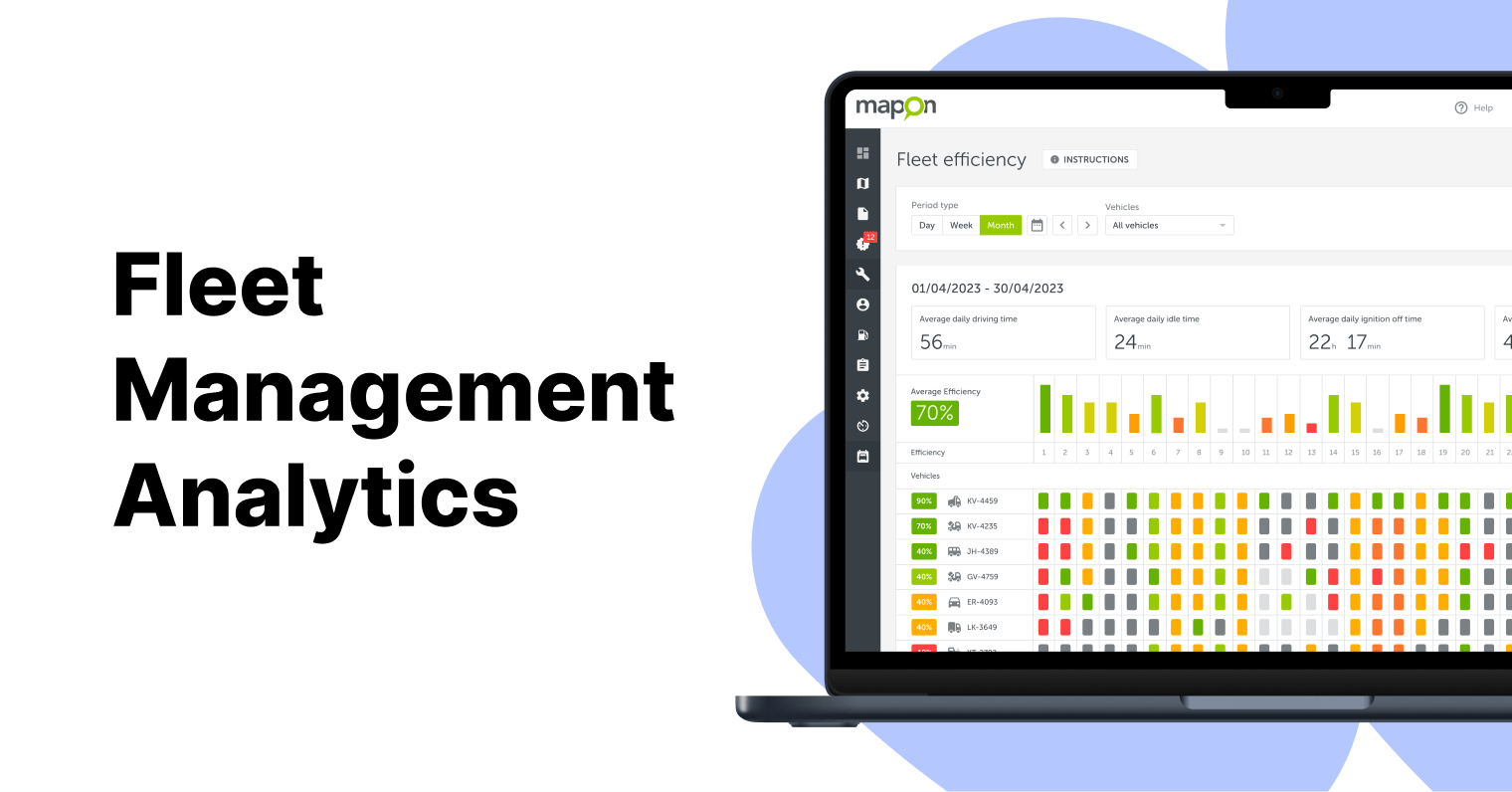Fleet Management Analytics – Make Data-Driven Decisions
Modern technology offers immense potential for fleet management analytics and data-driven decision-making. The more you utilise data and set benchmarks for the future, the more confident you become about your decisions.
However, it can be difficult to navigate all the information and not drown in the numerous platforms used by the company. In fact, 46% of fleets use over 10 apps to manage operations, and 48% of fleet managers emphasise that the most helpful technology solution for them would be a single platform that provides all necessary information.
Use a single platform for all your needs
The Mapon fleet management platform offers exactly this – all your data in one place, be it vehicle locations, driver behaviour measures, or the amount of fuel consumed. API integrations allow companies to seamlessly send information from external systems to Mapon, summarising all fleet management data. On top of that, our platform enables you to organise the data in a dashboard displaying the most important daily insights.
How can fleet management analytics help you make decisions?
Fleet management data can come in handy when deciding on the necessary training for your drivers, searching for new ways to decrease costs, or deciding which vehicles need replacing. In this article, we will outline how your fleet management platform can assist in making four different types of decisions.
1. Recognise the most effective assets
One of the most important decisions regarding your fleet is which vehicles should be retired and which should be utilised more. One has to make sure the current fleet is composed of vehicles that are used to their full potential, retire the inefficient ones, and keep maintenance costs as low as possible. To aid these decisions, fleet management analytics metrics such as fuel consumption, idling, engine power, total repair costs, mileage, and CO2 emissions should be considered. Mapon compiles all this crucial information in a single place, highlights the fleet’s overall performance, and lets the user view data for individual vehicles.
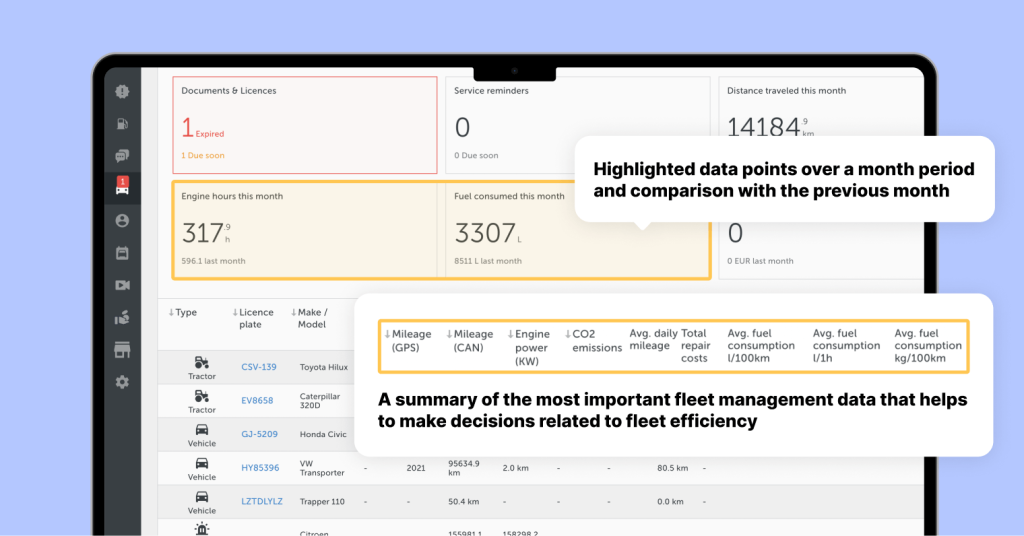
For example, the waste management company Remeo gathers data on drivers and vehicles to ensure optimal asset use. The Development Manager Joonas Savolainen emphasises:
“It’s really important for us to have the right number of vehicles – so that we don’t have underutilised vehicles or so that we are not constantly without vehicles.”
Read more about their experience here!
The fleet efficiency solution takes a snapshot of a vehicle’s performance over a day, week, or month. It summarises fleet management data like driving and idle time, as well as time spent with the ignition on & off. Based on that, a general score is calculated for each vehicle, simplifying decisions regarding the fleet’s efficiency. Interested in learning more Check out our deep dive into the solution here!
2. Easily choose driver coaching topics
Driver coaching can be time-consuming, and finding the correct improvement areas is a challenge in its own right. This is where fleet management analytics come in handy – as either driver behaviour monitoring or fleet camera solutions. Both offer a summary of drivers’ actions, which will help you outline the trends in behaviour and areas for improvement.
For example, a vehicle can be equipped with hardware that gathers fleet management data from external and cabin cameras. In this case, the fleet manager receives alerts on a variety of pre-configured events detected by the video camera sensors, such as harsh cornering, speeding, or talking on the phone while driving. On top of that, there are other benefits to video telematics, like quickly getting evidence of theft and road accidents.
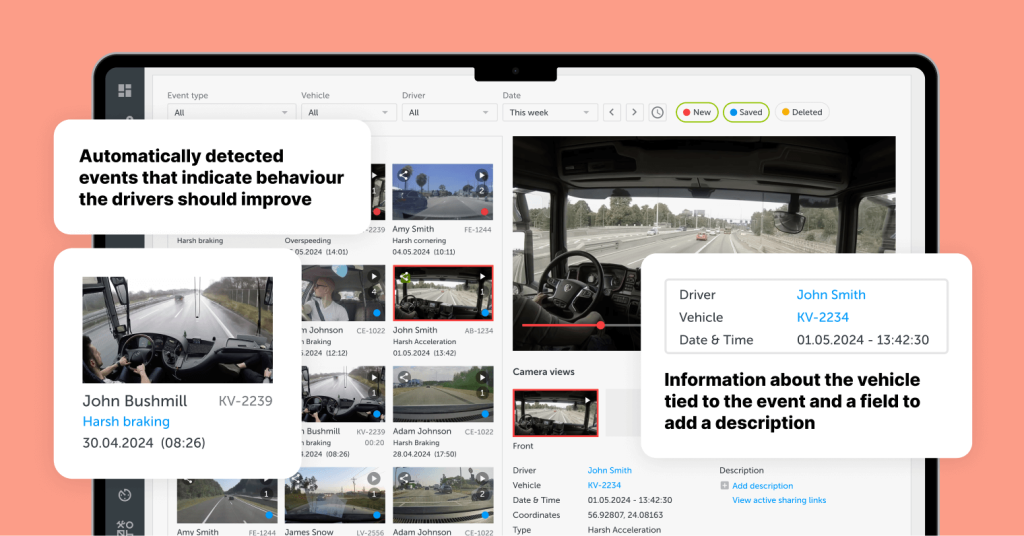
3. Discover ways to minimise costs
Every business tries to find ways to save money, and companies with fleets are no different. There are multiple data points to consider when attempting to minimise costs, and the first step is to assess where the business is overspending.
Mapon helps to manage costs associated with fuel, repairs, and maintenance through fleet management analytics. The platform allows fleet managers to upload detailed fuel receipt information and log repair costs with the option to add invoices and service reminders. Putting all this data in one place enables fleet managers to see which vehicles are associated with higher fuel costs or need maintenance more often, leading to an easier decision-making process regarding fleet optimisation.
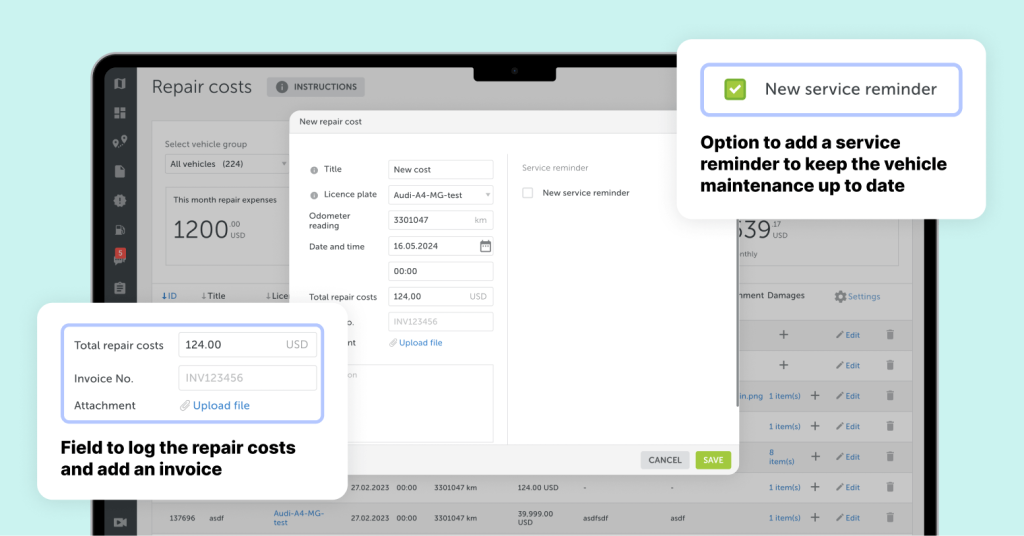
Another aspect to consider is labour costs and making sure that the salaries paid are based on facts and reflect real work – the number of hours and types of tasks completed. Mapon’s Worktime solution is a great tool for time-tracking and productivity management that will aid various fleets.
4. Improve the vehicle maintenance process
Streamline fleet maintenance processes by setting service alerts based on various triggers such as distance driven or motor hours. This way the decision of when a vehicle should be sent for inspection will be made automatically, for example, after 10,000 kilometres driven.
Mapon offers a wide range of alert types, as well as custom alerts to ease the platform’s usage, save time, and boost process effectiveness.
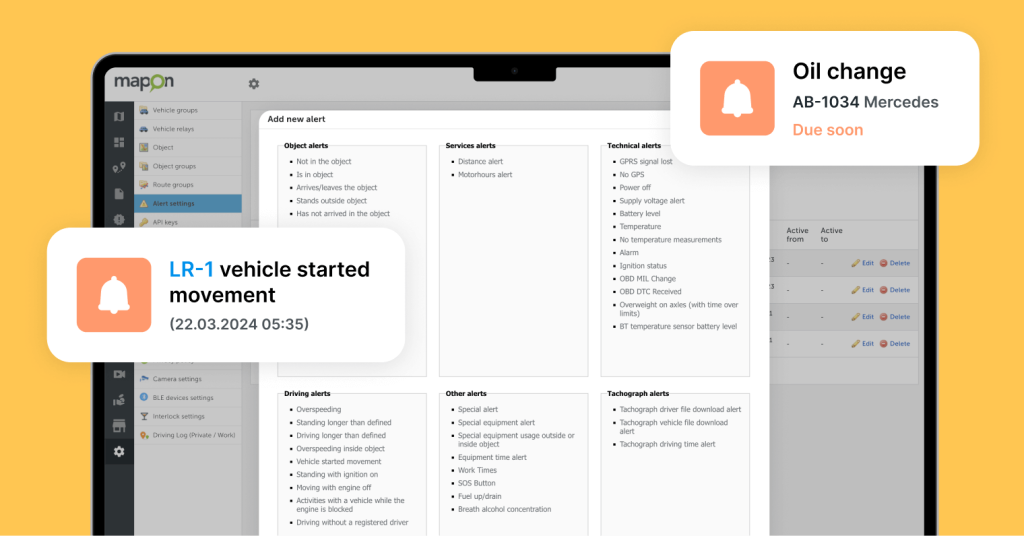
The Mapon Driver app offers another way to streamline maintenance by including employees in the process. They can regularly perform vehicle checks using the app and, based on these inspections, managers can book the necessary maintenance for the vehicles.
Don’t miss out on the opportunity to make fact-based decisions with fleet management analytics! If you want to know more about our solutions and how they can help you save time and analyse your fleet management data, contact our team.


